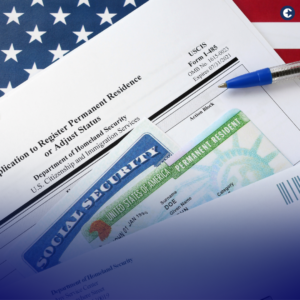Introduction:
Open enrollment is a crucial period for individuals and families to review and select their healthcare coverage for the upcoming year. Whether you’re enrolling in a new health plan or making changes to your existing one, being well-prepared with the necessary documents can streamline the process and help you make informed decisions. In this blog, we’ll discuss the essential documents you should have on hand when participating in open enrollment.

1. Personal Identification:
To start the open enrollment process, you’ll need to provide personal identification documents, which may include:
- Government-Issued ID: This could be your driver’s license, passport, or any other official identification card.
- Social Security Number (SSN): Your SSN is often required for enrollment and tax-related purposes.
- Date of Birth: Ensure you know your date of birth accurately.
2. Proof of Eligibility:
Depending on your circumstances, you may need to provide documents to prove your eligibility for certain benefits or programs. These could include:
- Proof of Citizenship or Legal Residency: If you’re applying for government-subsidized health insurance programs like Medicaid, you may need to provide documentation of your citizenship or legal residency status.
- Employment Verification: If you’re enrolling in an employer-sponsored plan, you might need to show proof of employment, such as a pay stub or letter from your employer.
- Dependent Documentation: If you’re adding dependents to your plan, be prepared to provide their identification and eligibility documents.
3. Current Health Insurance Information:
If you currently have health insurance, bring your existing policy information and any relevant documents, including:
- Current Health Insurance Card: Have your insurance card ready to reference your policy number and contact information.
- Policy Details: Familiarize yourself with your current plan’s benefits, coverage limits, deductibles, and copayments.
4. Financial Information:
Your financial information is crucial for determining your eligibility for certain programs and subsidies. This may include:
- Tax Returns: Particularly for government-subsidized programs, your most recent tax return can help determine your income and eligibility.
- Pay Stubs: If you have variable income, bringing recent pay stubs can assist in income verification.
- Bank Statements: In some cases, you might be required to provide bank statements to verify your financial situation.

5. List of Medications and Healthcare Providers:
To make an informed choice about your healthcare plan, it’s helpful to have a list of:
- Prescription Medications: Document the names, dosages, and frequency of any prescription medications you take.
- Preferred Healthcare Providers: If you have specific doctors or specialists you want to continue seeing, make a list of their names and locations.
6. Any Correspondence or Notices:
If you’ve received any notices or correspondence related to your health insurance or open enrollment, keep these documents handy. They may contain important information about plan changes, deadlines, or eligibility criteria.
7. Pen and Paper (or Digital Device):
Lastly, bring a pen and paper or a digital device like a smartphone or tablet. You may need to take notes, record important details, or jot down questions to ask during the enrollment process.
Conclusion:
Open enrollment is a critical time to make decisions about your healthcare coverage, and having the right documents at your fingertips can simplify the process. By gathering these essential documents in advance, you’ll be well-prepared to navigate the open enrollment period and select the plan that best meets your needs and circumstances. Remember to review the specific requirements of your enrollment process, as they may vary depending on your location and the type of coverage you’re seeking.
For more follow us on Instagram, Facebook, Twitter, & LinkedIn.



